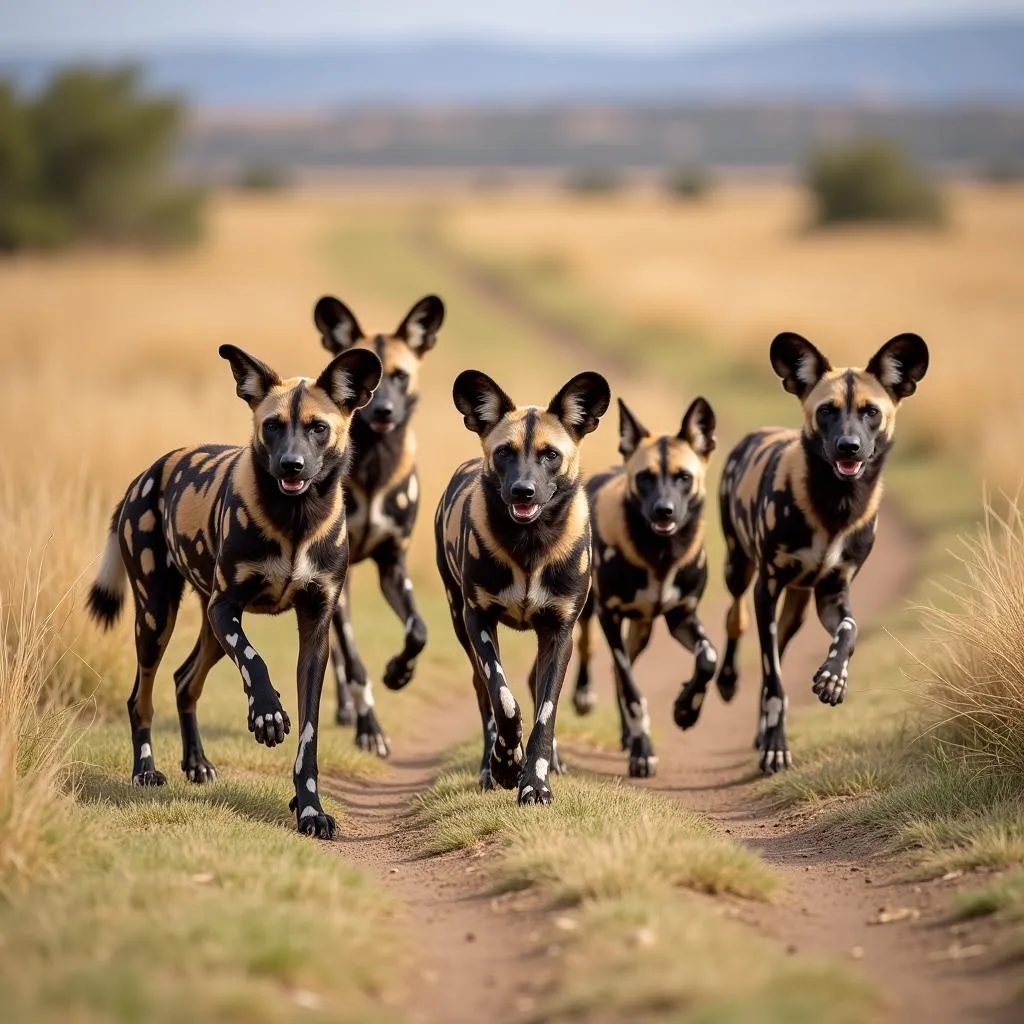African Cheetah Relocation to India: A New Hope?
The African Cheetah Relocation To India marks a significant moment in conservation efforts, aiming to reintroduce the species after its local extinction in 1952. This ambitious project brings both excitement and challenges, raising questions about the long-term survival of these majestic creatures in their new home. The initiative signifies a bold step towards restoring a lost piece of India’s natural heritage.
A Second Chance: Why Relocate Cheetahs to India?
The cheetah, once a familiar sight across the Indian landscape, disappeared due to hunting and habitat loss. The current relocation project represents an attempt to rectify this historical loss and revitalize the ecosystem. India offers vast potential habitats, including grasslands and open forests, suitable for cheetah populations. Reintroducing the cheetah could have a cascading positive effect on the environment, helping to control prey populations and maintain biodiversity. This project is not just about bringing back a single species; it’s about restoring a vital thread in the ecological tapestry of India.
The relocation involves transporting cheetahs from several African countries, including Namibia and South Africa, carefully selected based on their genetic diversity and adaptability. These cheetahs undergo rigorous health checks and quarantine procedures before embarking on their journey to India. The first batch of cheetahs arrived in Kuno National Park, Madhya Pradesh, chosen for its suitable habitat and existing prey base.
Facing the Challenges: Adapting to a New Land
While the prospect of cheetah reintroduction is exciting, significant challenges lie ahead. Adapting to a new environment, different from their native African savannahs, presents a major hurdle for these cheetahs. Competition with existing predators, such as leopards and tigers, poses a threat to the cheetahs’ survival. Human-wildlife conflict is another concern, requiring careful management to minimize risks to both cheetahs and local communities. The success of the project hinges on meticulous planning, ongoing monitoring, and community engagement.
The project team has implemented various strategies to mitigate these challenges. A dedicated team of experts is constantly monitoring the cheetahs’ movements, health, and interactions with their new surroundings. Community outreach programs aim to educate local communities about cheetah conservation and foster coexistence. These programs are crucial for ensuring the long-term success of the relocation project and securing the future of the cheetah in India.
The Long Road Ahead: Ensuring Cheetah Survival
The African cheetah relocation to India is a long-term commitment, requiring continuous effort and adaptation. The initial phase focuses on acclimatizing the cheetahs to their new home and establishing a breeding population. The ultimate goal is to create a self-sustaining cheetah population that contributes to the ecological balance of the Indian landscape. This ambitious project requires ongoing research, collaboration, and public support to ensure its success.
“The cheetah relocation project represents a significant milestone in global conservation efforts,” says Dr. Anika Sharma, a leading wildlife biologist specializing in large carnivore conservation. “It is a bold and innovative approach to restoring a lost species and revitalizing an ecosystem. The challenges are substantial, but the potential rewards are even greater.”
A Symbol of Hope: The Cheetah’s Return
The return of the cheetah to India symbolizes hope for conservation and the power of human intervention to restore ecological balance. This project has captured the imagination of people worldwide, highlighting the importance of international collaboration and scientific expertise in preserving our planet’s biodiversity. The success of this endeavor could serve as a model for future reintroduction projects, inspiring hope for the survival of endangered species across the globe.
“The local communities play a vital role in the success of this project,” explains Rajiv Kumar, a conservationist working closely with communities surrounding Kuno National Park. “Their understanding and support are crucial for ensuring the long-term survival of the cheetahs.”
Conclusion: A New Chapter for the African Cheetah in India
The African cheetah relocation to India is a groundbreaking initiative that carries the weight of both hope and responsibility. The project’s success will depend on continuous monitoring, adaptive management, and community involvement. The future of the cheetah in India rests on the collaborative efforts of scientists, conservationists, and local communities, all working together to ensure these majestic creatures thrive once again on Indian soil.
FAQ
- Why were cheetahs brought to India from Africa? Cheetahs were reintroduced to India from Africa to re-establish the species after its extinction in the country.
- Where were the cheetahs relocated in India? The cheetahs were initially relocated to Kuno National Park in Madhya Pradesh.
- What are the main challenges for the relocated cheetahs? The main challenges include adapting to a new environment, competing with existing predators, and potential human-wildlife conflict.
- How are the cheetahs being monitored? A dedicated team of experts is constantly monitoring the cheetahs’ movements, health, and interactions with their new surroundings.
- What is the long-term goal of the relocation project? The long-term goal is to establish a self-sustaining cheetah population in India.
- How can I support the cheetah relocation project? You can support the project by spreading awareness about cheetah conservation and donating to organizations involved in the initiative.
- What are the potential benefits of the cheetah reintroduction? Potential benefits include restoring ecological balance, controlling prey populations, and boosting tourism.
Further Reading and Related Articles
- Cheetah Conservation in Africa
- Kuno National Park: A New Home for Cheetahs
- Human-Wildlife Conflict Management in India
Need more information? Contact us! Phone: +255768904061, Email: kaka.mag@gmail.com or visit us at: Mbarali DC Mawindi, Kangaga, Tanzania. We have a 24/7 customer service team ready to assist you.



